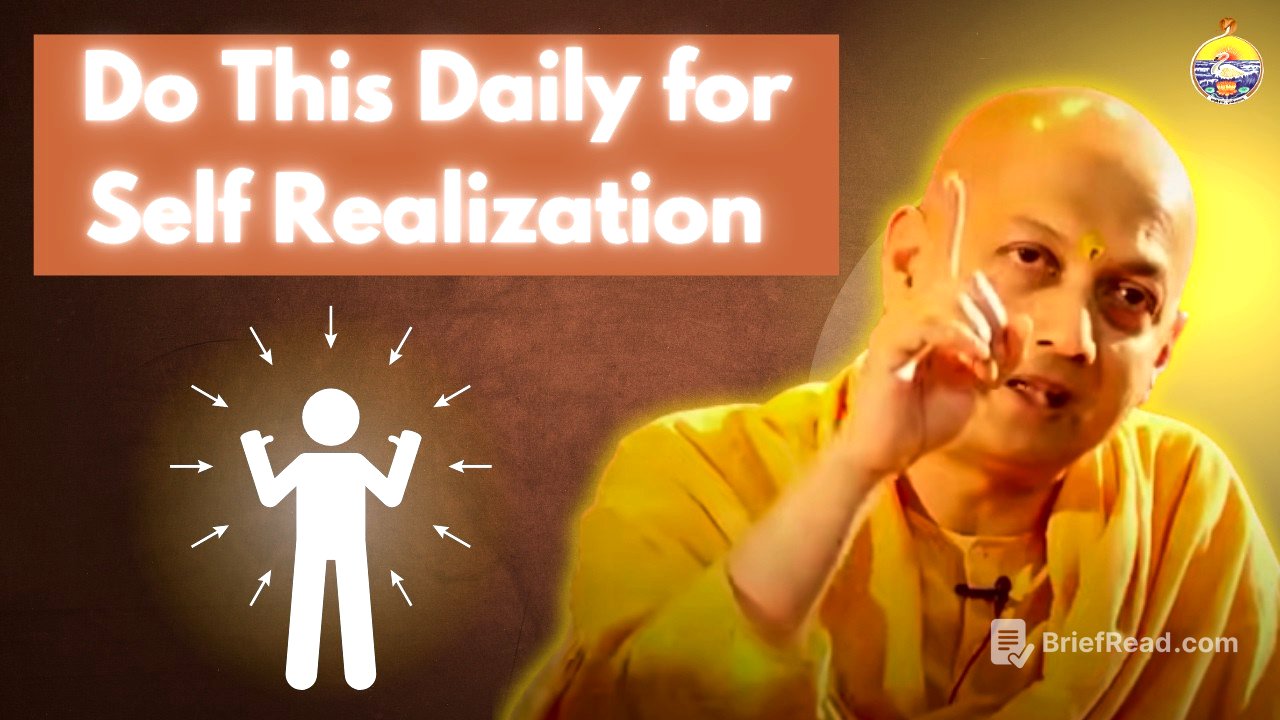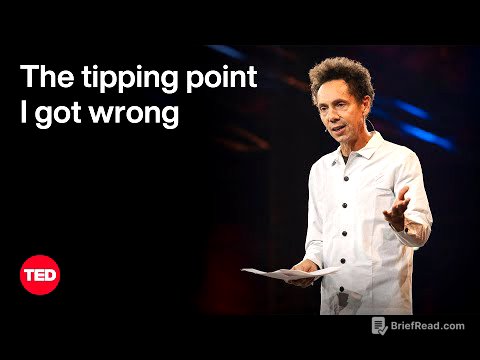TLDR;
This video explores the classical Advaita Vedanta interpretation of spiritual practices, outlining three essential yogas (Gyanai, Raja, and Karma) necessary for self-realisation. It explains how these practices address ignorance, distraction, and impurity of the mind, respectively, and must be performed in sequence, with one being more important than the others at any given time. The role of Bhakti yoga is also discussed, highlighting its importance at all three levels of spiritual practice.
- Three Yogas: Gyanai, Raja, and Karma yoga are essential for spiritual growth.
- Addressing Problems: These yogas tackle ignorance, distraction, and impurity of the mind.
- Bhakti Yoga: Devotion to God is beneficial at all three levels of practice.
Introduction to Classical Advaita Vedanta [0:00]
The speaker introduces two interpretations of spiritual practices: the classical Advaita Vedanta and a broader, more inclusive view. The initial focus is on the classical interpretation, rooted in the teachings of Shankara and post-Shankara Advaita. These practices are categorised into three groups, each essential but requiring sequential application, with one taking precedence at any given time.
The Three Yogas and Levels of Problems [0:44]
The necessity of the three yogas stems from the three levels of problems humans face. The first and most obvious problem is ignorance of our true selves, which is solved through knowledge via Gyanai yoga. This involves listening, reflecting, and meditating. However, merely listening to lectures is insufficient; practical application is essential.
The Flickering Mind and the Role of Meditation [3:30]
The second problem lies at a surface level: a flickering, distracted mind. The solution is meditation, which cultivates focus and concentration. Raja yoga and Bhakti yoga are useful here. Raja yoga stills the mind, while Bhakti yoga uses devotion to focus the mind by directing attention towards the divine. Desires and anxieties disturb the mind, but devotion to God provides support and settles the mind.
Impurity of Mind and Karma Yoga [6:52]
The third, even more surface-level problem is impurity of the mind, caused by negative thoughts and actions. This impurity prevents the mind from settling down. Karma yoga, which involves spiritualising actions and dedicating them to the Lord, is a powerful way to purify the mind. This selfless approach reverses the self-centred tendency, purifying the mind layer by layer.
The Matrix of Sadhana [10:42]
The speaker introduces a matrix to visualise the relationship between problems, solutions, and methods. The outermost problem is an impure mind, solved by purifying it through Karma yoga. The middle problem is a distracted mind, which requires concentration through meditation. The deepest problem is an ignorant mind, which needs knowledge through Ghana yoga, involving reflection and meditation. Meditation is crucial for both focusing the mind and dwelling on the results of Ghana yoga.
The Role of Bhakti Yoga and Traditional Approach [13:14]
The Sanskrit names for these practices are Ghana (knowledge), Upasana (worship/meditation), and Karma. Vedas are divided into three categories: karmakanda (rituals), upasana (meditations), and ghanakanda (knowledge). Advaita Vedanta primarily focuses on Ghana yoga, presupposing that the foundational work of purifying and focusing the mind has been done. Purity and concentration are taken for granted in the way of knowledge.
Knowledge and Enlightenment [18:28]
Enlightenment is synonymous with knowledge, addressing the fundamental problem of ignorance. Despite being inherently Atman or Brahman, we lack this awareness. Knowledge, generated through Ghana yoga, is the sole means to liberation. Just as light dispels darkness, knowledge dispels ignorance. Preparing the mind for knowledge requires Karma yoga and meditation. Bhakti yoga is beneficial at all three levels, purifying and concentrating the mind, and facilitating enlightenment through divine grace.
Culmination in Knowledge [20:40]
The traditional Advaita Vedanta approach emphasises that all three yogas are required in sequence, ultimately culminating in knowledge. Realisation of the limitless self, Brahman, is possible only with a purified, focused mind saturated with Vedanta knowledge. The speaker references Sridhar Swami's commentary, noting that while Krishna suggests multiple paths, the ultimate goal is self-realisation through knowledge.









